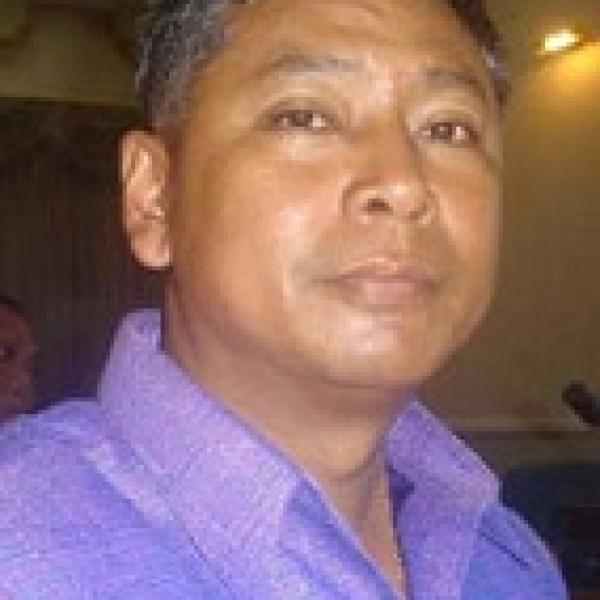Introduction
Promachote Traiwate is helping small scale rural producers to open new marketing channels which will allow them to sell their products directly to urban consumers.
The New Idea
As the Thai economy grows year after year at record rates, and as the country urbanizes rapidly, small rural producers need to develop new marketing channels which will allow them to reach potential urban consumers directly. Promachote has worked out several new strategies which will provide the producers with much wider profit margins than if they sold through middlemen. The producers will also have more direct contact with their market, which will allow them to develop their product to fit the ever changing needs and tastes of their consumers.Promachote's first breakthrough was with one of the major department stores in Bangkok. The department store provides the space for either a weekly or a monthly market while the village production groups pay all the expenses and undertake the management. The first village in its first year earned 100,000 Bhat. That grew to 500,000 Bhat ($20,000) profit in the second and subsequent years. These sorts of solid, substantial profits in turn help the villages improve and strengthen their products, production methods, and family incomes. Promachote is now launching another experiment using university campuses as the site for small village producer markets. He expects that these campus markets may help contribute modestly to reducing the gap between university students and the country's villagers.Although this new marketing channel is the most important single element helping Promachote change the life of small rural producers, his dream is much broader--he hopes to help them "stand on their own feet in terms of production, financing, and marketing." By helping the small producer groups obtain direct access to both raw material supplies and customers, he is eliminating the middleman.
The Problem
As the Thai economy grows at nine percent a year and people flow into the cities, more and more of the country's purchasing power is urban.
A large corporation has the specialized staff that allows it to track technical and market developments, to plan, to research, and to reach out and market across all the distances and complexities of with a rapidly broadening market. The small producer in a small village has none of that capacity.
A small rural producer is not in direct contact with either suppliers or customers. He is likely uneducated and, therefore, has difficulty understanding the economic and marketplace forces at work -- forces that have been marginalizing them and he and his products.
Promachote has worked for the government and studied its programs. He found that the programs ultimately do not affect the rural poor and that the government civil servants are as out of touch with the market as any of the small producers they serve. Working only piece by piece, the bureaucratically defined programs of the government have blinders on and are unable to handle the overall picture.
The Strategy
Promachote believes that once small producers have contact with their customers, their natural intelligence and creativity will drive them to create new and adaptive products for the market.
He is, in effect, recreating the old village market on a giant scale and in a modern, urban setting. Not only does this allow the small producers to interact regularly with their customers, but it also allows them to engage in healthy competition and to see the ongoing innovations of other producers. Thus, each department store or university marketplace becomes a center for the most practical form of product and technique idea dissemination.
Moreover, the greatly enhanced profitability of selling directly encourages the local small producer groups to organize themselves. How are they going to deliver their product to the market? How are they going to handle financing? Once they have learned to master this marketing channel, are there others they might begin to exploit? The process of organizing to service these regular urban markets turns the producers into active players in the market -- players with something beginning to resemble the staff capacity of the large corporate unit.
The Person
Promachote was the first son of a good family--both his parents exemplified a sense of commitment to community--his father served in the air force and his mother was a housewife and vendor. At St. John's (Catholic) School, the nuns provided another powerful model of commitment and service.
In school, he began undertaking social work very seriously. This work prevented him getting the top grades that he otherwise would have obtained. However, upon graduating from the Open University, he focused on his studies and also organized a group of many of the top students there. His entrepreneurial qualities, despite his focus on studies, came out again in 1980 when the University then suffered a shortage of textbooks. He and his friends dealt with the problem by listening carefully at lectures, writing up what they had learned, editing the results, and printing several thousand copies for distribution to the text-less students. The group of top students he created, which still exists today, also created a textbook hand-me-down system that still continues to help poor students--each participating student buys one book and puts it in a library, which then allows him and the other studentsaccess to the full textbook library thus created.
After graduating, Promachote worked in an advertising firm while studying for his second degree in political science. After a number of other shifts, he took up community development work with the government. He specifically chose not to go into the military, but rather to pursue his commitment to public service and to recognize that he is, at the end of the day, a very independent creator.
